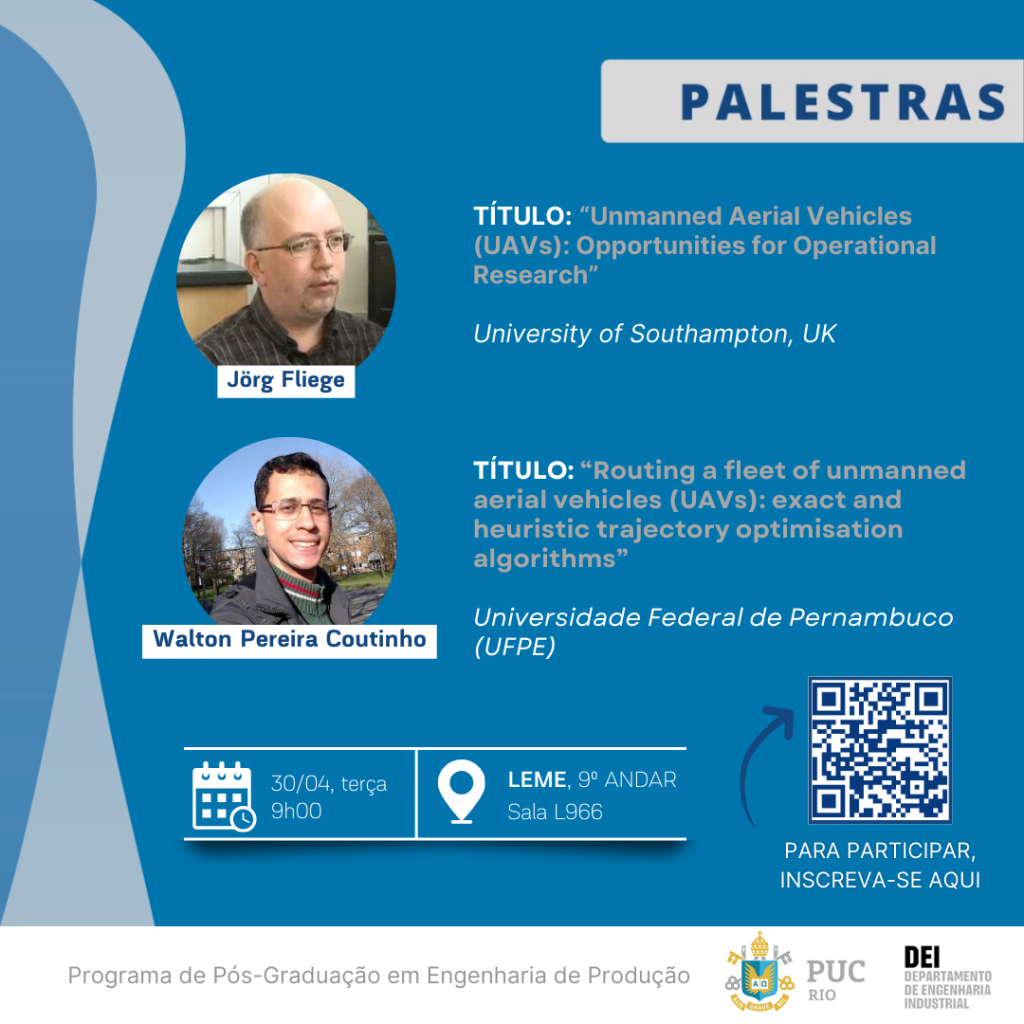Palestras de professores visitantes

Na próxima terça-feira, dia 30 de abril, teremos a visita dos professores Jörg Fliege da Universidade de Southampton, UK, e Walton Coutinho da Universidade Federal de Pernambuco. O encontro será às 9h, na sala L966.
Título: Unmanned Aerial Vehicles (UAVs): Opportunities for Operational Research
Palestrante: Jörg Fliege – University of Southampton, UK
Abstract: Swarms of unmanned aerial vehicles often operate in dynamic environments in which given information changes over time and new information only becomes available locally. This necessitates the use of distributed computational frameworks and optimisation models that take uncertainty into account. In addition, most UAVs do not operate fully autonomously: they have to communicate with each other or with a group of remote pilots. This increased complexity is reflected in additional decisions that have to be taken with respect to the usage of the electromagnetic spectrum (EM) for communication by the UAVs. In this talk we discuss the corresponding challenges and opportunities and provide examples for such OR problems in the realm of defense. In defense, judicious use of EM resources is particularly important, as adversaries and own forces will attempt to intercept, spoof, and jam electronic communications in a highly dynamic and rapidly evolving environment.
Título: Routing a fleet of unmanned aerial vehicles (UAVs): exact and heuristic trajectory optimisation algorithms
Palestrante: Walton Pereira Coutinho – Universidade Federal de Pernambuco
Abstract: In recent years, employing Unmanned Aerial Vehicles (UAV) for surveying operations has gained popularity. Often, the use of UAVs allows for a reduction in costs and improvements of other performance criteria. Finding feasible trajectories for UAVs in a routing problem is a complex task, but it is necessary to ensure the feasibility of the routes. Motivated by a disaster assessment application, we propose a problem in which a fleet of UAVs is required to photograph a set of points of interest in the aftermath of a disaster. We propose single and multi-phase Mixed-Integer Non-linear Programming (MINLP) formulations for this problem. Our formulation simultaneously optimises routes and flight trajectories by modelling flight dynamics as ordinary differential equations. Next, we propose a heuristic method that is composed of two main building blocks: (i) two so-called Sequential Trajectory Optimisation (STO) heuristics, designed to cope with the challenging task of finding feasible (flyable) trajectories for a given route; and (ii) a routing matheuristic, capable of generating routes that can be evaluated by STO. Computational experiments are carried out to show the performance of our approaches.
Para participar, preencha o formulário: https://forms.office.com/r/xmZ5Ti7rf5